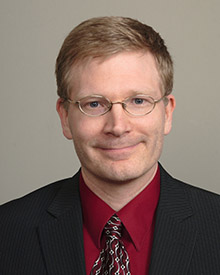
Heart Disease Virtual KSA
This live virtual activity will be held on Wednesday, December 11, 6:00-10:00pm PT
Join your colleagues via zoom to complete this 60-question Knowledge Self-Assessment (KSA), facilitated by Dr. Ryan Kauffman. The Heart Disease KSA focuses on diagnosis and management of acute coronary syndrome and other manifestations of ischemic heart disease, as well as stable and acute decompensated heart failure. Topics include pathophysiology, EKG interpretation, pharmacologic and non-pharmacologic treatment, and disease progression and outcomes.
After completion, learners will earn 10 ABFM certification points and 8 AAFP Prescribed credits. For more information about ABFM Maintenance of Certification, please visit theabfm.org.
Learning Objectives:
After completing the Heart Disease KSA, learners will be able to close knowledge gaps and:
- Have a better understating of management of chronic coronary artery disease, chronic compensated heart failure.
- Be able to identify and diagnosis of ischemic heart disease, classification of various types of heart disease.
- Be able to evaluate and manage acute coronary syndrome and acute decompensated heart failure.
- Have a better understanding of EKG Interpretation and pharmacologic management of various types of heart disease.
- Have a better understanding of the complications of treatment.
Target Audience:
This activity is designed for family medicine physicians.
Participation and Credit:
Learners must register to participate in and receive credit for this live online educational activity. Read the target audience, learning objectives, and author disclosures. Live attendance and active participation between 6:00 and 10:00pm on Wednesday, December 11, 2024 is required, with web camera turned on throughout and a functional microphone. Each code word revealed during the activity must be correctly marked in the Code Words Quiz, and the Evaluation must be completed. Your certificate will be available to you as a downloadable link. You may print the certificate, but you cannot alter it. For information on applicability and acceptance of continuing education credit for this activity, please consult your professional licensing board.
Fee:
$249 CAFP/AAFP Member; $299 Non-Member
Unlabeled Use Disclosure:
This activity will not include discussions of products or devices that are not currently approved for use by the Food and Drug Administration (FDA), and the curriculum clearly indicates this fact.
Cultural/Linguistic Competency:
CAFP policy and California state law requires that each learning activity have elements of cultural and linguistic proficiency included in the content. The definition of cultural and linguistic competency is the ability and readiness of health care providers and health organizations to humbly and respectfully demonstrate, effectively communicate, and tailor delivery of care to patients with diverse values, beliefs, identities, and behaviors, in order to meet patients’ social, cultural, and linguistic needs as it relates to patient health. This activity meets these requirements.
Implicit Bias:
CAFP policy and California state law requires that all CME activities comprising a patient care element include either (1) examples of how implicit bias affects perceptions and treatment decisions of physicians and surgeons, leading to disparities in health outcomes and/or (2) strategies to address how unintended biases in decision-making may contribute to health care disparities by shaping behavior and producing differences in medical treatment along lines of race, ethnicity, gender identity, sexual orientation, age, socioeconomic status, or other characteristics. This activity meets these requirements.
Privacy Policy:
The California Academy of Family Physicians (CAFP) is committed to protecting the privacy of its members and customers. CAFP maintains safeguards to store and secure information it has about members and customers. The safeguards may be physical, electronic or procedural. For more information, contact [email protected].
Questions:
For questions regarding the content of this activity or for technical assistance, contact [email protected].
The CAFP has made all reasonable efforts to ensure that information contained herein is accurate in accordance with the latest available scientific knowledge at the time of accreditation of this continuing education program. Information regarding drugs (e.g., their administration, dosages, contraindications, adverse reactions, interactions, special warnings, and precautions) and drug delivery systems is subject to change, however, and the learner is advised to check the manufacturer's package insert for information concerning recommended dosage and potential problems or cautions prior to dispensing or administering the drug or using the drug delivery systems.
Approval of credit for this continuing education program does not imply endorsement by CAFP of any product or manufacturer identified.
Any medications or treatment methods suggested in this CME activity should not be used by the practitioner without evaluation of their patient's condition(s) and possible contraindication(s) or danger(s) of use of any specific medication.
Copyright:
© 2024 California Academy of Family Physicians. No part of this activity may be used or reproduced in any manner whatsoever without written permission except in the case of brief quotations embedded in articles or reviews.
Ryan Kauffman, MD, FAAFP, CCFP
Family Medicine Physician
 Ryan D. Kauffman, MD, FAAFP, CCFP, practices Family Medicine with the Erie Shores Family Health Team in Leamington, Ontario, Canada. He has led over 40 group KSA sessions over the last 14 years. He has developed various board certification and practice improvement initiatives for the Ohio Academy of Family Physicians including EasyPI. He is an Associate Medical Editor for FP Essentials and a past president of the OAFP. Dr. Kauffman's clinical interests include ambulatory medicine and office-based procedures.
Ryan D. Kauffman, MD, FAAFP, CCFP, practices Family Medicine with the Erie Shores Family Health Team in Leamington, Ontario, Canada. He has led over 40 group KSA sessions over the last 14 years. He has developed various board certification and practice improvement initiatives for the Ohio Academy of Family Physicians including EasyPI. He is an Associate Medical Editor for FP Essentials and a past president of the OAFP. Dr. Kauffman's clinical interests include ambulatory medicine and office-based procedures.
Disclosure:
Ryan Kauffman has no relevant financial relationships with ineligible companies to disclose.
Conflict of Interest Statements:
The CAFP Committee on Continuing Professional Development is responsible for management and resolution of conflict for any individual who may have influence on content, who have served as faculty, or who may produce or help produce CME/CPD content for the CAFP. Management/Resolution may include learner notification, peer review of content before presentation, changing topics, or even dismissing a potential faculty member.
It is the policy of the CAFP to ensure independence, balance, objectivity, scientific rigor, and integrity in all continuing education activities. All individuals with potential to influence the content of this program have submitted Conflict of Interest declarations that have been reviewed according to policy. Learner notification of declarations is below. All individuals with potential conflicts have been contacted by CAFP staff or CCPD members, and issues of conflict have been discussed, managed, and resolved.
CME Planners:
The following planners have no relevant financial relationships to disclose: Anita Charles and Laurie Isenberg, MA, MILS
The AAFP has reviewed Heart Disease Virtual KSA and deemed it acceptable for up to 8.00 Knowledge Self-Assessment, Live AAFP Prescribed credit(s). Term of Approval is from 12/11/2024 to 12/11/2024. Physicians should claim only the credit commensurate with the extent of their participation in the activity.
Available Credit
- 8.00 AAFP Prescribed

 Facebook
Facebook X
X LinkedIn
LinkedIn Forward
Forward